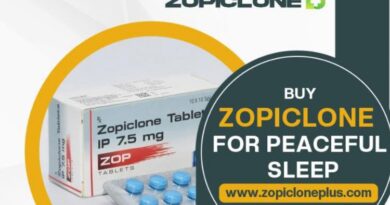CRM: The Road to Personalized Patient Experiences in Healthcare
In the swiftly evolving landscape of healthcare, Customer Relationship Management (CRM) structures have emerged as pivotal gear. CRM’s in healthcare transcend conventional customer support paradigms, tailoring patient care to personal desires and ancient interactions. The transition towards a cost-based care version underscores the necessity of those systems in offering not just remedies, but comprehensive fitness experiences tailor-made to each patient. As the fabric of healthcare operations undergoes transformational change, CRMs are at the vanguard, championing a brand new technology of personalized affected person engagement and healthcare efficacy. However, the street to a hit implementation of CRMs in healthcare isn’t without its challenges. In this newsletter, we delve into these barriers and offer insights on how to conquer them.
The Role of CRM in Patient-Centered Care
In the past, healthcare relied heavily on a volume-based care approach — treating as many sufferers as viable without a deep recognition of individualized care. Today, the tide has become closer to value-primarily based care, emphasizing the significance of final results over output. CRMs play a pivotal role on this shift, providing healthcare providers comprehensive tools to construct a patient-centric method. By defining CRM within healthcare, professionals can apprehend how wealthy affected persons’ facts and insights can sell individualized care plans and improve lengthy-time period health outcomes. More so, it enables caregivers to tailor person affected person interactions and reviews.
Streamlining Healthcare Operations with CRM
CRM systems even have a splendid effect on the inner mechanisms of healthcare institutions. They enhance conversation within teams and among departments, assisting a more coordinated method to patient care. This coordination can result in decreased wait times and higher affected person throughput, in the end resulting in a greater green healthcare transport gadget. A clear instance of CRM effectiveness is determined through case research in which CRM integration with current EMR structures amplified operational excellence. By consolidating and automating administrative tasks, inclusive of scheduling appointments or dealing with billing, CRMs permit healthcare specialists to cognizance of core activities, together with affected person care. As a result, healthcare establishments can optimize workflows and decrease administrative burdens while nonetheless providing splendid care to sufferers.
Enhancing Patient Engagement and Satisfaction
Patient engagement is critical to achieving nice health outcomes. Analyzing the functionalities of CRM reveals its potency in fashioning custom designed interactions for patients, thus fostering an environment wherein patients feel valued and understood. Educative CRM tools empower sufferers, mainly to increase engagement with their fitness problems. The strategic series and usage of patient comments permit for chronic provider improvement, amplifying satisfaction charges. Additionally, CRM systems offer patients with handy access to their health statistics, promoting transparency and belief within the healthcare group. Ultimately, the end result is a high-quality affected person enjoying and improved universal delight.
Overcoming Challenges in CRM Implementation
Navigating Data Privacy and Security Compliance
Safeguarding patient data within CRM structures is critical. Focusing on compliance with HIPAA inside the US, and different relevant statistics protection guidelines globally, is critical to maintain agreement with and guard in opposition to statistics breaches.
Ensuring Interoperability with Current Systems
Successful CRM implementation calls for seamless integration with present Electronic Medical Records (EMR) systems, making sure data flows without silos and keeps the integrity of affected person data.
Managing Change Effectively
Transitioning to robust CRM systems needs effective change control, encompassing thorough schooling programs for the body of workers to evolve and include new workflows, thereby minimizing resistance and disruptions.
Sustaining CRM System Relevancy
Continuously updating the CRM machine with modern-day healthcare tendencies and emerging affected person needs guarantees that the machine remains a fundamental tool, usually contributing to its primary aim of enhancing both operational and affected person care.
Effectively Engaging Patients
The fulfillment of CRM implementation is predicated on active affected person engagement. Implementing techniques inclusive of customized messaging, appointment reminders, and health schooling content can growth affect person involvement, leading to higher fitness outcomes.
Maximizing the Potential of Data Analytics
The great quantity of records accumulated by way of CRM structures provides precious insights into affected person conduct and preferences. Utilizing data analytics tools can assist perceived styles, are expecting affected person wishes, and improve decision-making strategies.
CRM Integration with Other Technologies
Integration of CRM for Healthcare with other technologies should be approached with strategic making plans and an expertise of how it is able to synergize with tools including Artificial Intelligence (AI), telehealth systems, and cellular fitness packages. The aim is to create a comprehensive environment where CRM for Healthcare acts as the relevant hub for all patient-related interactions and data insights. This now not handiest streamlines care coordination but enhances the personalization of patient care, which is essential in today’s competitive healthcare landscape. By harnessing the total abilities of those technologies together with a tailor-made CRM answer, healthcare vendors can deliver advanced patient experiences and pressure ahead the evolution of healthcare shipping systems.
Conclusion
As we conclude, it is evident that CRM structures have emerged as an essential element in realizing the imaginative and prescient of individualized affected person studies. It is an invitation to healthcare leaders to undertake CRM adoption, recognizing its integral role inside the innovation and elevation of healthcare services. As those technologies hold to adapt and integrate with other virtual health gear, the future of CRM in healthcare appears no longer handiest promising but pivotal to the sustained development of world health systems. With the proper technique and utilization, CRM for healthcare can pave the way for a patient-centric destiny in which individualized care is the norm. Let us embody this transformation together, for the betterment of sufferers, carriers, and the entire healthcare enterprise.
Author Bio :- Arjun is a Business Growth Strategist at a Leading Software Development Company. Apart from working on a long-lasting relationship with customers and boosting business revenue, I am also interested in sharing my knowledge on various technologies through successful blog posts and article writing.



